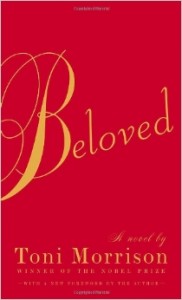 Virginia’s ‘Beloved bill’ has returned to the commonwealth’s General Assembly for the second year in a row, and CBLDF last week signed on to an opposition letter from the National Coalition Against Censorship. The legislation would require school districts to warn parents about educational materials containing undefined “sexually explicit” content, likely resulting in a chilling effect on curricula.
Virginia’s ‘Beloved bill’ has returned to the commonwealth’s General Assembly for the second year in a row, and CBLDF last week signed on to an opposition letter from the National Coalition Against Censorship. The legislation would require school districts to warn parents about educational materials containing undefined “sexually explicit” content, likely resulting in a chilling effect on curricula.
The original bill last year was conceived under pressure from a small group of parents led by the mother of a now college-aged student who was disturbed by the content of Toni Morrison’s Beloved when it was assigned to his AP English class in 2015. The bill passed both houses of the Assembly but was vetoed by Gov. Terry McAuliffe, who wrote that it “lack[ed] flexibility and would require the label of ‘sexually explicit’ to apply to an artistic work based on a single scene, without further context.”
After failing the legislative route, the bill was revived as a proposed administrative regulation before the Virginia Board of Education last fall. In late January the board rejected the regulation by a vote of 5-2, but it had already been filed once again as HB 2191 in the General Assembly. Ironically the bill’s sponsor, Rep. R. Steven Landes, also shepherded a bill reaffirming the free speech rights of students, faculty, and guest speakers on public college campuses. That bill passed the House of Delegates with a large majority and is currently in committee in the Senate.
In the latest six-page letter sent to the chair of the Virginia Senate Committee on Education and Health last week, NCAC coalition partners outlined the bill’s many constitutional pitfalls. Even apart from the free expression issues, the letter points out that the bill simply does not make for sound educational policy since it could place Virginia students at a disadvantage:
The requirement for parental notification and consent not only deters the teaching of important material, it also completely disregards the First Amendment rights of students to be taught books that have unquestioned educational value. The proposal originated from a parent’s objection to the teaching of Beloved in a 12th Grade Advanced Placement class, which is designed to provide college credit for advanced students, some of whom are eighteen years old and therefore not minors. The objection to an award-winning, iconic American novel, written by a Nobel Prize winner and studied by students all over the country, reveals how the proposal could place Virginia students at a competitive disadvantage by discouraging the teaching of significant works of literature. Furthermore, any parental consent requirement imposed on students over the age of eighteen plainly violates their rights, and even younger students have a constitutionally recognized interest in access to important educational materials.
Read the full letter below, and stay tuned for updates on the bill that will not die!
NCAC Letter Regarding Virginia HB 2191 by betsy.gomez on Scribd
Help support CBLDF’s important First Amendment work in 2017 by visiting the Rewards Zone, making a donation, or becoming a member of CBLDF!
Contributing Editor Maren Williams is a reference librarian who enjoys free speech and rescue dogs.